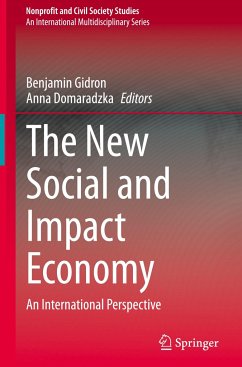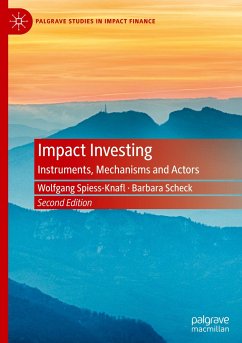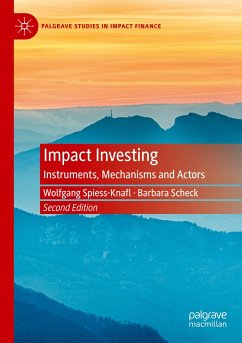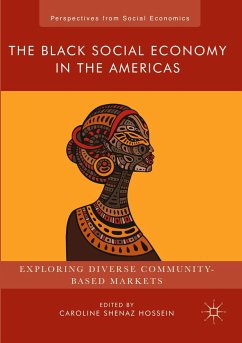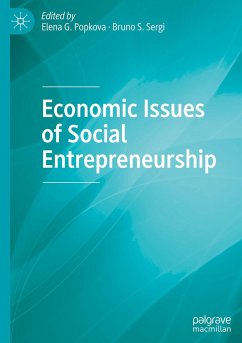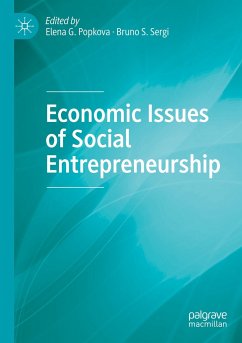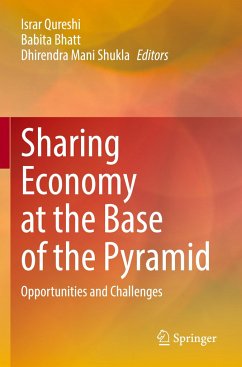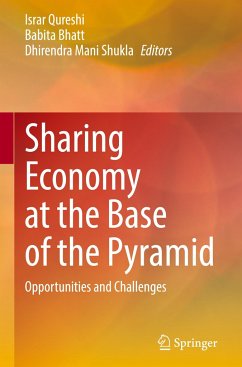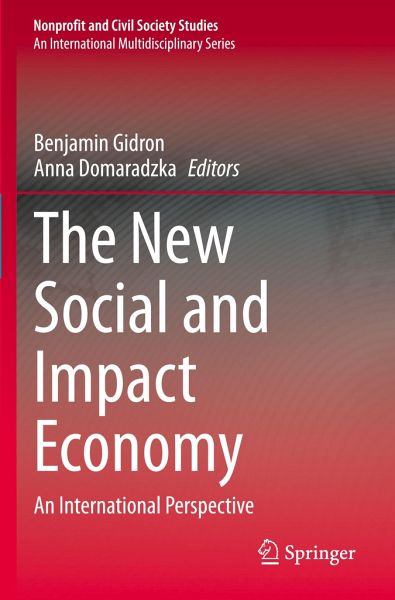
The New Social and Impact Economy
An International Perspective
Herausgegeben: Gidron, Benjamin; Domaradzka, Anna
Versandkostenfrei!
Versandfertig in 6-10 Tagen
91,99 €
inkl. MwSt.

PAYBACK Punkte
46 °P sammeln!
This edited volume discusses the development of the new social and impact economy in ten countries around the globe. The new social and impact economy is an attempt to conceptualize developments after the 2008 economic crisis, which emphasized the pifalls of the Neo-Liberal economic system. In the aftermath of the crisis, new organizational entities evolved, which combined social and business objectives as part of their mission. Using data gathered by two recent international research projects-the ICSEM project and the FAB-MOVE project-the book provides an initial portrait of the forces at pla...
This edited volume discusses the development of the new social and impact economy in ten countries around the globe. The new social and impact economy is an attempt to conceptualize developments after the 2008 economic crisis, which emphasized the pifalls of the Neo-Liberal economic system. In the aftermath of the crisis, new organizational entities evolved, which combined social and business objectives as part of their mission. Using data gathered by two recent international research projects-the ICSEM project and the FAB-MOVE project-the book provides an initial portrait of the forces at play in the evolution of the new social and impact economy, linking those to the past crisis as well as to Covid19 and comparing the emergence of the phenomenon in a varied group of countries.
The book begins with an overview of the classical definitions of social economy and proposes a comprehensive concept of new social and impact economy, its characteristics, and sources. Ten country chapters as well as a comparative chapter on international social economy organizations follow. The volume concludes with an overall analysis of the data from the country chapters, forming a typology of social economy traditions and linking it to recent Post Capitalism trends.
Creating a conceptual framework to analyze the new phenomena in social economy, this volume is ideal for academics and practitioners in the fields of social economy; social, economic and welfare policies; social and business entrepreneurship in a comparative fashion; social and technological innovation as well as CSR specialists and practitioners.
The book begins with an overview of the classical definitions of social economy and proposes a comprehensive concept of new social and impact economy, its characteristics, and sources. Ten country chapters as well as a comparative chapter on international social economy organizations follow. The volume concludes with an overall analysis of the data from the country chapters, forming a typology of social economy traditions and linking it to recent Post Capitalism trends.
Creating a conceptual framework to analyze the new phenomena in social economy, this volume is ideal for academics and practitioners in the fields of social economy; social, economic and welfare policies; social and business entrepreneurship in a comparative fashion; social and technological innovation as well as CSR specialists and practitioners.





